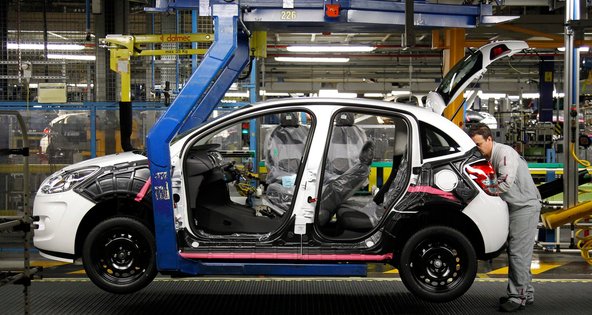 Carlos Barria/ReutersCopper cathodes at the Yangshan Deep Water port near Shanghai. Xstrata is one of the world’s biggest miners of copper.
Carlos Barria/ReutersCopper cathodes at the Yangshan Deep Water port near Shanghai. Xstrata is one of the world’s biggest miners of copper.
LONDON — Glencore International gained European regulatory approval on Thursday for its $32 billion takeover of the mining company Xstrata, after agreeing to sell assets and reduce its operations in Europe to satisfy antitrust concerns.
On Tuesday, Xstrata’s shareholders voted to back the multibillion-dollar takeover, which will create a mining giant with a market capitalization of around $80 billion.
The shareholders, however, rejected plans to give around 70 of Xstrata’s top executives bonuses worth a combined $220 million. The failure to secure the payouts, which had been supported by Xstrata’s board, led the company’s chairman, John Bond, to say he would resign upon completion of the deal.
Antitrust authorities had raised concerns that the takeover would reduce competition in a number of commodity sectors.
On Thursday, the European Union ordered Glencore to sell its 8 percent stake in Nyrstar, the world’s largest zinc producer. In an effort to increase competition in the European zinc market, Glencore also must end an agreement with Nyrstar to sell the company’s zinc.
By ending its sales agreement with Nyrstar, Glencore will cut its share of the European zinc market from 50 percent to about 40 percent. Without the concessions, the European Union said, the combined Glencore-Xstrata would have had an incentive to raise zinc prices across the Continent.
“The proposed remedy ensures that competition in the European zinc metal market is preserved,” the European competition commissioner, Joaquín Almunia, said in a statement on Thursday.
Glencore said on Thursday that it had noted the European Union’s approval of the proposed Xstrata deal.
Shares in Glencore rose 3 percent in afternoon trading in London on Thursday, while shares in Xstrata increased 3.1 percent.
The takeover, which has taken more than nine months of sometimes tortured negotiations, is now expected to close early next year, according to people with direct knowledge of the matter, who spoke on the condition of anonymity because they were not authorized to speak publicly.
South African and Chinese antitrust authorities still must approve the deal.
The combination, which initially was opposed by several of Xstrata’s leading investors, including the sovereign wealth fund Qatar Holding, comes at a difficult time for the mining industry. A slowdown in fast-growing emerging economies like China and India has hit commodity prices.
The Glencore-Xstrata deal may also lead to a new round of consolidation in the sector, as companies adjust to the economic reality of lower prices and a decline in demand.
Article source: http://dealbook.nytimes.com/2012/11/22/glencore-wins-antitrust-approval-for-xstrata-deal/?partner=rss&emc=rss


